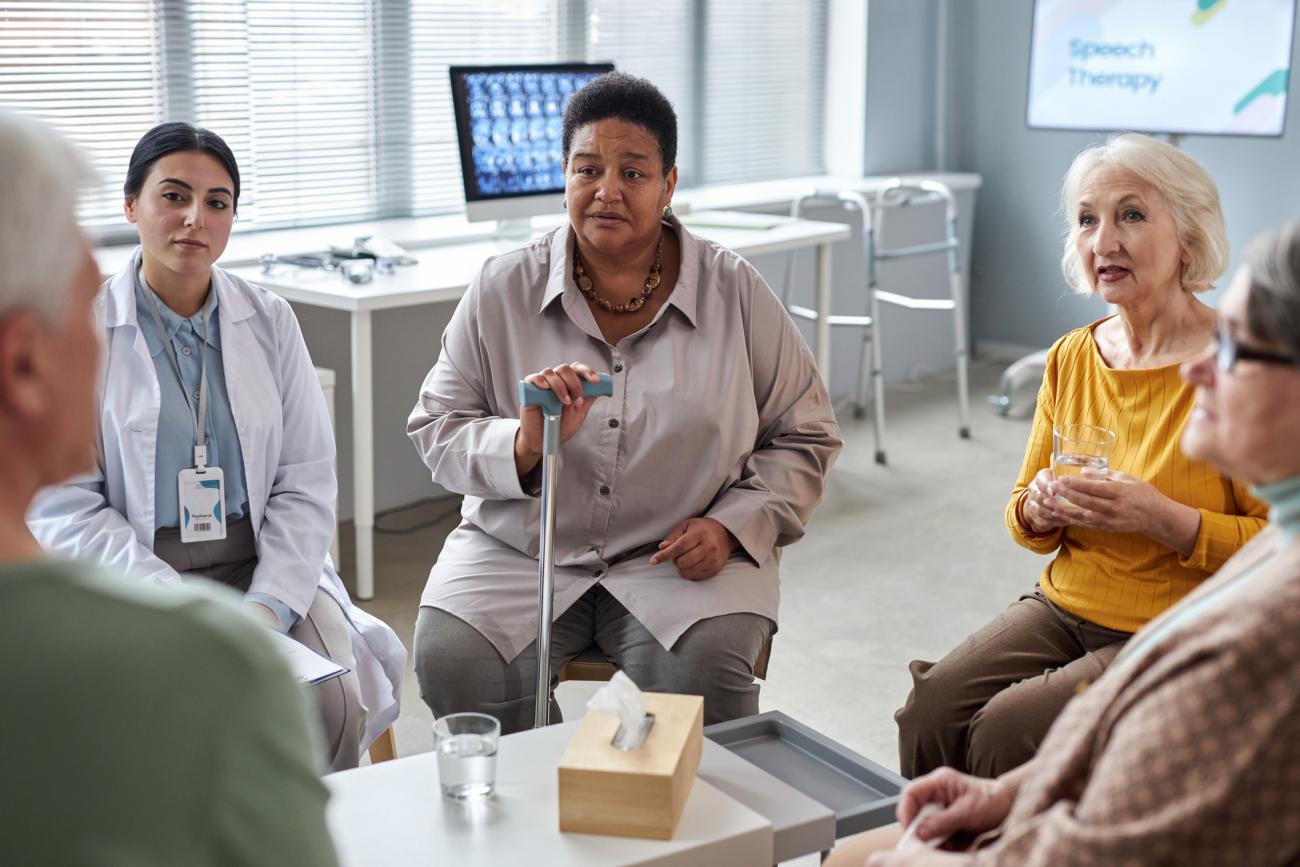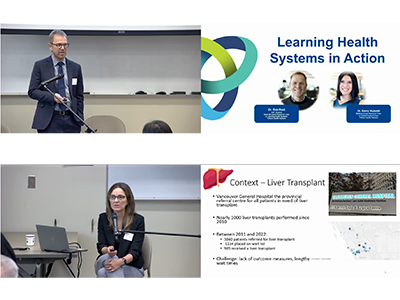
A framework that supports a systematic approach to meeting patient needs in care delivery is gaining traction among teams at Vancouver Coastal Health.
Learning Health Systems is an increasing priority at Vancouver Coastal Health (VCH) and Vancouver Coastal Health Research Institute (VCHRI) that champions continuous learning through knowledge, practice and data collection to improve patient outcomes and experiences. Driven by the VCH value “we are always learning,” the Centre for Clinical Epidemiology and Evaluation (C2E2) at VCHRI is working to expand the reach and adoption of Learning Health Systems at VCH.

“Learning Health Systems enhances quality improvement at VCH by explicitly integrating research and implementation science into care delivery,” says VCHRI researcher Dr. Donald Griesdale. “Importantly, the approach emphasizes the inclusion of patient-identified priorities and patient partners in decision-making.”
“The process embeds scientists within care teams to offer advanced research methodology and patient engagement for sustained care enhancement.”
A recent example of Learning Health Systems in action at VCH was a review of antipsychotic reduction strategies at VCH long-term care facilities conducted in collaboration with patient partners. The project was led by UBC School of Social Work PhD student Karen Wong and supervised by VCHRI researcher Dr. Lillian Hung and senior Learning Health Systems lead Dr. Krisztina Vasarhelyi.
“We had on the team a patient partner living with dementia who provided in-depth and valuable feedback: from the formation of the research questions all the way through to the research process,” says Vasarhelyi. “Other patient partners with lived experience and their family members also regularly attended project team meetings, informing and co-creating our research.”
“A unifying theme of Learning Health System projects is that they involve embedded research in which interdisciplinary teams of scientists, clinicians and patients partner to co-create research questions and health care priorities.”
The antipsychotic reduction strategies project team also conducted interviews with VCH clinicians, pharmacists and staff involved in implementing a provincial antipsychotic reduction strategy to glean insights and best practices. Identified as a high-priority area of investigation at VCH, the project integrated knowledge translation, providing other VCH team members with information on project research findings and implementation to scale impacts and insights across the health authority.
Better alignment of care delivery and outcomes that are important to patients
A second example of Learning Health Systems at VCH — conducted in partnership with VCHRI researcher and liver transplant surgeon Dr. Maja Segedi and liver transplant surgeon Dr. Stephanie Chartier-Plante — aimed to identify outcomes important to patients and caregivers.
Importantly, patients and caregivers were integral members of the study team itself. C2E2 team members initially conducted a literature review of existing outcomes that have been reported in patients who have received a liver transplant. The next phase of the ongoing study involves interviewing health professionals, transplant recipients and caregivers to understand what outcomes are important to them.
“Engaging with our patient partners on the liver transplant project has been such a rewarding experience for me,” says Dr. Nitya Suryaprakash, a qualitative researcher with C2E2. “Besides directly impacting the project with their insights, the enthusiasm and commitment of our patient partners to the project has fostered a sense of shared purpose, encouraging me to do better at my job and making work fun again.”
“Through this project, we are trying to address a knowledge gap in identifying the outcomes that are important to patients and their caregivers,” states Griesdale. “This is the outcome that we strive for in all Learning Health Systems initiatives at VCH.”

“At the end of the day, clinicians and allied health team members want to deliver the best possible care to patients; however, the patient voice has not necessarily been represented in health care delivery decision-making,” Griesdale adds. “Learning Health Systems gives us a path forward to better embed patient priorities into our care.”
For more information about Learning Health Systems, visit the Institute for Better Health or contact the Centre for Clinical Epidemiology and Evaluation.


